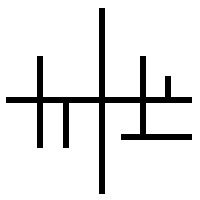Smart speakers with personal assistants like Amazon Echo etc. Not remotely useful enough to be worth placing spying Equipment all over my home.
Wireless headphones. So now I’m supposed to recharge my headphones and get worse sound quality for it? In a few years they become e-waste, while good wired headphones can last decades. No thanks.
So much this
No smart speakers
It’s a mic sitting there waiting for your commands and everything it does I can do myself easier
That’s true, smart speakers and wireless gadget are the waste of the century, things factories can’t even recicly and that fills the world of trash.
I have good wired headphones (10 years old) and good earbuds (5 years old) and use both. There’s a place for each.
I use wireless headphones just for watching TV, cable doesn’t work well for this use case.
You mean, you don’t want a 1984-esque always-on listening device in your home?
Yup. I begrudgingly began using wireless headphones beacuse I don’t want to have to carry around an adapter to use them once they killed 3.5mm on phones… Granted I really only use headphones while working out or mowing the lawn or something so it’s whatever. Still hate having to worry about having charged headphones, turning on Bluetooth, figuring out if my headphones are off or ok because of the awkward button pushes to turn them off, on or get into connect mode. It’s just overly complicated.
I have a really nice pair of wired Sonys (MDR-7506) that I modded with a 3.5mm jack, and bought a small BT receiver that’s strapped to the headband. So I now have the best of both worlds.
I love my Bose wireless headphones (quiet comfort 45). They sound really great, but I also paid $200 (on sale) for them and regret nothing.
The battery is user replaceable with some care.
I can’t stand the wireless earbuds that you charge in a case or whatever but you’ll have to pry my Sony WI-C400 neckband headphones from my cold dead hands.
I have become so clumsy with the wires, it was less wasteful for me to buy wireless earbuds with wire only between them. The modern codecs are high quality and I only use them outside, so the nuance would be anyway lost.
Smart speakers I do not have. I feel weird talking to devices and I would have to do it in English because they support my native language poorly if at all. I’m not sure if they even are officially available here.
Everything unnecessarily connected to the Internet should have this on them, because they have very little security auditing and all support is dropped very early on the lifetime of the appliance. https://kissa.depili.fi/internet_asbestos_52x32_cmyk.pdf
Wireless headphones. So now I’m supposed to recharge my headphones and get worse sound quality for it? In a few years they become e-waste, while good wired headphones can last decades. No thanks.
I tend to avoid any wireless peripherals, I still have a wired mouse because I don’t need to think about charging my mouse and whether it’s going to run out of charge.
Wireless mice are such a weird one to me. Like your mouse will never move more then a foot away from it’s normal spot so why do you need wireless?
Wires get in the way of the rest of the clutter on my desk.
Everything that need a pay subscription to work.
For me it’s anything I have to download an app to operate.
Except for public transport :-D
Virtual assistants, e.g. Alexa, Cortana, Siri
I don’t want to interact with the companies they represent basically at all, let alone give them nearly unfettered access to my electronics and their data.
I confess to having an iPhone and other apple products, but they will Always have that “finish setting up” message forever because I will NEVER turn Siri on. Ever.
I mean I’m
openly a hypocritenot a purist either when it comes to these companies, especially Google and Amazon. Like my phone is an Android and I posted an Amazon link the other day. But, I’m still trying to find ways to get them out of every possible aspect of my life. I’m just done with their particular brand of bullshit.
I have never used Bixby, I’ve used the Google assistant a few times but other than that, no thanks
I know people who worked on Bixby and the one thing they have in common is they all hate Bixby and think it’s garbage.
Apple anything
Patiently waiting on Asahi Linux to get more and more features done – the stuff they’ve achieved to reverse-engineer so far already is frankly incredible.
The hardware is quite nice, after all…
And why?
Leaked emails indicate, they use iMessage to actively lock down users in their walled garden. This is area with literally zero innovation (or even regression) for past decade. At least.
Giving money to Apple basically equals to strangling innovation in exchange for getting (sometimes or even rarely) marginally better UX in boring, well explored areas.
Also once you are bought into their ecosystem you are stuck with some mediocre products like iPhone, because if you want alternative, you have to throw away watch, tv and speakers and then redo entire home automation due to lack of elementary interoperability.
That’s some real salt there buddy.
You are definitely entitled to your opinion, but ‘apple hardware and software is objectively inferior’ isn’t much of one.
It’s especially disingenuous to present those opinions like they’re established fact, when they definitely aren’t. You may not think that Apple is particularly innovative or that their UX is particularly good, but I think you’d definitely be in the minority there, especially outside of niche online communities filled with people with an axe to grind.
I’m pretty close to being as much of a power user as someone can be within the use case that I have for general purpose computing. I also feel like I probably know the mobile/desktop software space better than the average person on the street, I’m a SWE by trade.
I honestly think that the gap between the UI/UX design on Apple software and the UI/UX design on windows in particular, but android to a lesser extent, is the most compelling reason to use apple. And I also think it’s ridiculously out of touch to claim that Apple’s innovation’s (especially in hardware) aren’t significantly better executed and consistent than the competition. Sure, they don’t throw every half-baked idea into every new product they release, only to abandon that idea in 18 months for a new batch of experiments. I think that’s one of the reasons Apple users like Apple products. Personally, I’m not buying a phone because I want to spend two weeks trying out a bunch of gimmicks and then never using them again unless I’m showing my friends the cool thing my phone can do.
But, of course those are my subjective opinions and I’m not faulting you for disagreeing. There are people out there who thing Outlook is good UX, and they’re entitled to that opinion lol. But I do think it’s a little silly to disagree in a way that makes it obvious that you think that anyone who disagrees with you has no idea what they’re talking about.
I never wrote they are objectively inferior. I even admitted they can be marginally better in some areas. My point is they’ll vendor lock the hell out of you and the trade off isn’t worth it.
Meanwhile you wrote two walls of text to defend company that uses your children and technology worse than ICQ (released in 1996) to make you buy their products. You’re free to do so, but I’m not sure which one of us is salty :-)
Probably my fault you didn’t see this because it was buried deep in the wall of text, but I clarified that I’m definitely not trying to morally exculpate Apple.
In the context of which of two companies you choose to do business with, you shouldn’t criticize one while ignoring the immoral actions of the other. If we’re just talking about the things apple does wrong, I’m right there with you. But if we’re talking about which mobile phone ecosystem is less predatory than the other… at least my relationship with apple is a voluntary business arrangement with exactly two parties. That’s actually the reason I moved all of my stuff out of the android ecosystem in ‘21 after >10 years. Seeing ads across a dozen websites related to a private medical diagnosis made me realize Google just knows too much about me, and I do care about my privacy after all.
That’s obviously just my personal opinion but my point is that if you’re looking for an ethical tech company, I’ve got a bridge to sell you.
I don’t believe in ethical companies. Microsoft was cool once, then Google was cool, now some people seem to think that Apple is cool.
Best way to not get burnt is not to get vendor locked with one of them. Android allows me to install Firefox(real one, not Safari re-skin), replace launcher or even entire OS with Graphene. Google sucks in many ways, but if I’m not happy with them I just install software from another vendor. With ios I have to throw away half of the hardware I own.
I don’t believe in ethical for-profit companies either.
The open nature of Android was the single biggest reason I used it for the decade that I did. If I were to switch back, I’d buy a pixel.
But android isn’t as open as it used to be. Yes, you can still unlock your bootloader, root, and install custom roms, but Google is now actively fighting against users who want to do so. On my pixel 3, it became a never-ending battle to keep apps like my banking portal working while rooted, and to keep rooting working through updates. At least once a month, I’d be out of the house and have my phone fundamentally break in some way.
Eventually, I reached the point where I needed a smartphone as a tool more than I needed one as a toy to tinker with, so I left it stock. But stock android sucks from a privacy perspective. I realized that I wasn’t using 3rd party App Stores and I wasn’t rooting my phone, so the largest benefits of avoiding an iPhone weren’t really a factor to me anymore.
I was also extremely disappointed in the hardware, quality control and longevity of new android phones, especially compared to the iPhones being released. So I switched. And was amazed at how glad I was.
No police showed up to my door to force me to trade my Sony headphones in for AirPods or my Dell laptop for a MacBook. I already had an iPad because at the time, it was the only serious tablet of you care about using a stylus, but that had been working beautifully for me without any other apple products.
I think it’s silly to list the fact that an OEM has a ton of products that work well together as a reason not to buy any of that company’s products. If you don’t want to get locked in, don’t buy an Apple Watch. As far as I know, nothing else requires an iPad. And anyway, the resale value on apple products is so solid that if you did totally buy in, selling all your apple hardware would get you more than enough to buy matching hardware of a similar age from other manufacturers. Sell your two year old iPad and you can probably get 3 two year old Samsung tablets, assuming you can find any that still work.
The web browser thing also hardly locks you in. If you really don’t want to use safari, that’s a decent reason not to want to use iOS. For me at least, safari is the browser I would choose to use, so I don’t really care that I can’t use Firefox.
Source?
OP is somewhat mistaken, it wasn’t a leaked email since it was revealed in the Epic v. Apple case, but here’s one of many sources you can find on the topic.
That’s interesting, but it’s hardly what I was imagining based on what the user I replied to was saying.
The source linked quoted an Apple exec explaining that the cost/benefit analysis of building a piece of free software on a platform that generates them no revenue doesn’t justify them spending the resources to build the software.
I get it, we all want corporations to be benevolent entities that give us free software out of the kindness of their hearts, but if we’re going to criticize one of them for not doing so, I think it’s more clear-minded to criticize the system as a whole.
Why in the world would anyone expect Apple to spend development resources building iMessage for Android (for free), especially if they’ve determined that it will hurt user retention? Because we want them to? It sucks, but not like “evil mega-corp manipulating users” sucks, more like “corporation making decision that literally every other for-profit corporation would make in that situation” sucks.
I’m not trying to morally justify it, I’m strictly speaking in the context of “use products from x instead of y because y did bad thing”. In that context, that’s a bad argument if it’s true that x is just as anti-user as y is.
And if we’re specifically talking about using Apple products vs using Google products here, you’d have to be taking crazy pills to think that Apple is more anti-user than a company who’s entire business model is the commoditization of vast amounts of personal data gathered for the purpose of more effectively manipulating literally everyone, including non-users of their products, into increasing their consumption.
The only thing I like about apple is their apple pen for making illustrations on procreate. For me, nothing is comparable.
Everything else is a nightmare though. Even if the apple pen is awesome, I just can’t recommend anyone to buy such an expensive device considering you can’t really repair it and cannot do anything apple doesn’t want you to.
Voice commands on anything. It just feels silly.
Voice typing long messages is IMO faster than using a phone keyboard, even with gesture typing.
Voice typing is a game changer if you break a hand. I did a semester of college writing several essays a week with 99% voice typing.
I have only very recently come around on that. When voice commands first came out, they were absolute garbage. I am still conditioned to never expect them to work, and am always pleasantly surprised when they do.
To be fair, I largely only use them for things like setting my alarm, because I still have an engrained expectation that they won’t work otherwise.
Genuine question, so they actually work better now?
I mostly use it to set timers and alarms, but once in a while i set reminders but they often come out like i need to buy “dead foot”, when I’m out of cat food for example
Things I use it for with almost 100% accuracy: Timers, Alarms, Lights, Pausing/Playing TV.
Things I use it for with like 70% accuracy: Weather and anything interfacing with maps. To be entirely fair to it though, I live in a non-English speaking country and use voice assistants in English usually, so city/place names REALLY throw it. If I change the voice assistant to my local language and use it, it works a lot better.
I have honestly never tried setting a reminder because my brain is still rooted in early voice control tech where something like that would never conceivably work.
Depends…
Patent of a Baby?
Voice command is ya friend
Having a smart home?
Voice command is awesome for being lazy (unfrotunatally i love my privacy so i cannot use Stuff like that right now…)
Cooking something and both Hands are gross as f***?
Hell Yeah Voice command to Set a Timer :D
I think it’s the one area I’m a Luddite. I really should use voice commands on my smart home stuff because the apps are trash. But it still feels weird. Silly mental block.
I’m fine with voice command if it can be done locally. The only pipe dream is that some day, maybe some of them will support my near extinct native language. So I don’t have to speak foreign languages at home.
Smart watches.
Couple of reasons:
-
I like my mechanical watches. They aren’t the expensive flashy ones, but I like the way they look and especially like the mechanical engineering. It’s one of the (maybe only?) Item I can think of that I use daily and ‘does something’ without electricity. Smart watches are nothing like that.
-
When I want to be offline I can just ignore my phone or flip it upside down. Having notifications on my wrist all day long wouldn’t be good for my mental health. It annoys me so much when I see people looking at and using their smartwatch mid conversation because they are so addicted to it. And I know I would be the same once I start using it.
-
It’s expensive and e-waste after a few years.
Agreed on the watches. I had one smart watch (moto 360) and while cool was very gimmicky for actual functionality and I personally believe that was one of the best looking smart watches. Also the notification reason. My phone is on silent unless my spouse is out somewhere.
I loved my Moto 360 (also agree on best looking) for navigation though. It was great having turn by turn directions right there in my line of sight while driving. I have a Samsung watch now that I mainly just use to see text messages, check the time, or count my steps. Unfortunately, Samsung wanted to push their own crappy map service so GMaps doesn’t integrate very well with them.
Most smart watches go too far but I love my Garmin Instinct. It feels like a modern digital. Just enough cool tools and features but still black and white. With the o2 sensor on it lasts nearly two weeks, a month with it off, before it needs charging. I can track hikes and bikes. Gives me exact coordinates with a push of a button and no subscription or additional monthly fees to use it. If I could afford a mechanical watch for the price I paid for my Garmin ($130 used) maybe I’d own one.
I love my Instinct Solar. I have never connected it to my phone though — I don’t want notifications or anything. I can manually take the workout results and plug them into my phone.
The solar part is really nice. I did a three hour hike in Colorado a few weeks ago (GPS off) and added like eight days of estimated battery.
Solar sounds great. I have a Garmin FR55 and linked it to an old phone with no sim and a throw away email account, so it just syncs each time I get back from a run. Lasts a week even with gps during runs. Also turned off all notifications as I hate that. I stopped wearing a watch about 20 years ago but this (after a bit of getting used to) is actually quite useful.
Totally agree with you. I’ve had a couple times where I’m tempted to get one but always talk myself out of it. I’m already addicted to my phone enough as it is. A smart watch would just totally mess me up.
I actually find that I use my phone less when I’m wearing my smartwatch than when I’m not. When notifications come in, I need to make sure it’s not work related or something else that requires my immediate attention. If I check a notification on my phone, I’m much more likely to end up doing something else at the same time. Whereas if I check my watch, I don’t have any incentive to do anything else.
I’m the same way, I have only a few apps allowed to push to my Garmin, and it’s helpful to be able to archive or delete a useless email or know there’s something worth taking my phone out for. I find myself leaving my phone in other parts of the house is more focus-friendly since I’m not getting distracted while able to keep my eyes out for work-related items.
When smart watches came about I thought it would be cool to be able to look at your watch when a notification comes in. Never ended up buying one and when I see how some people behave, I’m glad I never did. Some people will just glance mid conversation at their smart watch, which imo is just as bad as grabbing your phone mid conversation.
I’m happy with my cheap Casio. Looks heaps better too.
-
Most social media.
I used to use reddit, I have moved all my presence over here. That’s about it.
I have a FB Messenger account because that is how a lot of my family keeps in touch with me, and I have this. I had a proper FB account back when I was in uni and Facebook was still only for uni students, but I think I dropped it shortly after that.It’s not some grand principled stance, I just don’t get most of them because I am apparently an old man. Like Instagram, why do I want to share pictures with just random people? How am I networking with anybody by doing so? I honestly don’t get why it is so popular.
Any of the camera doorbells or security systems that ship all the footage to their own cloud. It’s unsettling to have devices with cameras semi controlled by a third party like that.
I’m lazy but opted for POE cameras in a system that I just hooked up because of this. It took a couple days of crawling around the attic and drilling holes in the wall, but now I don’t have to worry about Amazon or Google selling/giving my personal camera feeds to whomever requests it/cuts them a check.
Yeah, I like having cameras but don’t want that video being sent elsewhere. I ended up getting Tapo cams which are cheap cloud cameras but they also have RTSP streams and local username / password settings. That means I can send the footage to a locally hosted NVR and lock the cameras behind a parental option in my router that blocks all external in and out communication to them.
Anything that has the word “smart” in it.
^ this
“Smart” anything is something of a misnomer as the “smarts” are on some “cloudy” server far away. One can only hope that without the “cloudy” connection the thing will continue to function on a “dumb” level.
“Smart” “phones” are even more of a misnomer since they’re basically pocket computers that happen to have a phone in them. I’ll use them because they can be useful if they do what you want, but I don’t install any proprietary apps.
deleted by creator
One can only hope that without the “cloudy” connection the thing will continue to function on a “dumb” level.
I actually like smart products, but this is a requirement for me. It needs to be a functional “dumb” product if internet connections/servers fail, I usually won’t buy anything I can’t verify that for (or will return it if I find out that is not the case when I test it). I never want to be stuck in a situation where I can’t turn my house lights on because the router went down, or the blinds become inoperable.
Smart features should always be on top of basic functionality, they shouldn’t be a requirement just to remove a couple physical buttons.
My phone can’t even show pictures… and that’s the way I prefer it.
Where do you find a non-smart TV these days? Seems like nobody makes them anymore
Any good TV will be a smart TV. Just don’t connect it to the internet and it’ll effectively be another basic TV.
expired
I go out of my way to avoid cloud-based products. Which- is funny, because I do a LOT of home automation, and many of the cheap products, are cloud-interconnected shit, which will go obsolete in a few years.
Need… a list of reasons? I got you covered. https://static.xtremeownage.com/blog/2022/reasons-to-avoid-cloud-based-automation-products/
It’s there a list somewhere of good non-cloud home automation devices… I don’t want to install custom app per brand of lightbulbs ffs
A good start-
Zwave and zigbee are 100% local by design.
Anything running an esp chip is usually flash able.
Check home assistants integration list for things you are considering buying.
Cloudfree.shop has a lot of local only devices
Oh nice thank you. I have zwave switches with openHAB… I should look into home assistant
I’d highly recommend at least giving it a try. Every single month, they keep making it better and better.
Smart Watches.
-
I don’t want to take care of charging for yet another device. Plus, analog watches are beautiful!
-
Already trying to limit my screen time, no reason to check notifications the instant they pop.
-
Don’t want to be conscious of my heart rate and sleep schedule all the time. Also have some privacy concerns about real time data associated with me making its way into big tech’s servers.
-
LLMs. Despite how absurdly useful they are, I can recall a time when I had the skills of remembering phone numbers naturally and being able to easily navigate with no maps of any kind.
These skills have deteriorated significantly in the past 10 years, and they’re not the only ones. The common thread they all have is my smartphone replaced them.
I fear losing a skill that is less innocuous, from the new tech effectively replacing my need to practice it.
Try not having a smartphone with you when you leave the house. Actually many starting returning back to basic phones just for calls and SMS.
Kid who doesn’t remember a time without a phone, using a “dumb” phone is impossible despite a want for it. So many things are qr based or require a phone at my college. I learned this the hard way when my phone broke and I didn’t replace it for 2 weeks. Couldn’t even access my accounts cause of 2fa.
I would love to use a “dumb” phone for text only but the most random shit will require a “smart” feature.
For sure not having a smartphone mean also living without the comfort and the easy access. Try to achieve something that seems impossible without tech I think is the mean cure of the lack of skills you mean before.
No I mean it’s actually not possible to do some of the stuff I needed for school. The only way to access financial aid is joining a queue from online. While at the the office. Nobody is in it to ask.
Similarly I couldn’t access my accounts on campus since I did not have the app that’s on my phone.
You don’t think you’ve used the freed-up brain capacity on other skills that are still useful?
No, I don’t think the brain really works that way, except in the very broadest sense.
Anything “smart” exepct smartphone.
I dont want more stuff collect my data, and I am lazy to selfhost it.Generative AI. Dall-E just produces dumb images. ChatGPT is absolutely useless, nothing more than some kind of novelty toy. The fact that people are asking it questions and believing it is just so plain stupid. And if i need to do research to be able if it just talks bullshit again - why bother asking it in the first place?
To be fair, I’ve written plenty of useful code as a hobbyist with the help of Chat GPT. Not good for writing anything factual or creative, but it’s a decent assistant at my level.
IMO the use case for ChatGPT is stuff that’s not important but still tedious to write. For example, I’m applying for engineering work and my resumé “looks” like shit, so I’m going to need to write a shitload of cover letters. I don’t want to write them, like literally at all. It’s boring and stupid. But ChatGPT will happily write them. Sure there might be factual errors, but I’ll read the output and correct errors by hand. I still save time not having to write boilerplate or structure sentences.
Also, ChatGPT can work with programming languages. For example, I had ChatGPT write me a matrix algebra class in C++ just for fun. The first iteration didn’t compile, but it had the jist of how to represent a matrix and matrix multiplication. The second iteration compiled and worked on what I tried it on. Would I use it in production? Probably not while Boost exists. However, I probably could have used it to start writing a matrix algebra library if I really wanted to.
The fact that people are asking it questions and believing it is just so plain stupid.
The fact of the matter is that people are more gullible than they think. People have been encouraged to blindly trust authority figures since the dawn of civilization. We are simply reaping the consequences of our continued complacency.
It’s not unreasonable to ask ChatGPT (or anyone/thing) else questions. The issue is when they are treated as all-seeing oracles. ChatGPT in particular makes for a poor search engine because it is particularly likely to output convincing-sounding lies, because it is designed to optimize the convincing-sounding-ness of outputted text.
And if i need to do research to be able if it just talks bullshit again - why bother asking it in the first place?
Well, it can point you in a direction to begin your own research. However, the main use case is really when you don’t want to do the work and you don’t care about the quality of the work. I don’t think people fully realize that workers generally don’t want to do their work (would you do your job for free?), because that would contradict the assumption that work under capitalism is natural, voluntary, and not imposed upon the world.
LLMs can be super useful if there is an authoritative source of truth. I wrote a Langchain app that takes my Python code, asks ChatGPT to optimize it then uses symbolic analysis to perform equivalency checking. I get to write and have clear simple python code, and then I offload optimization to a bot.

























